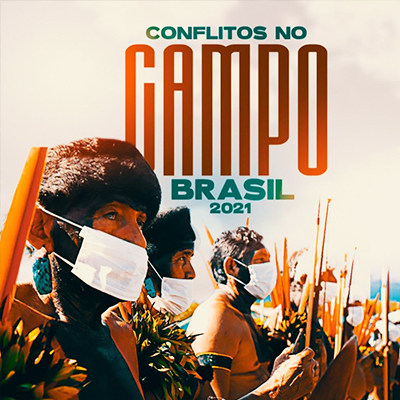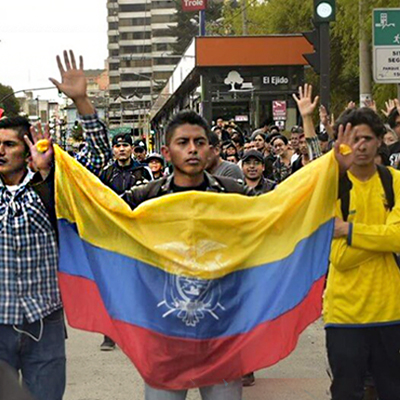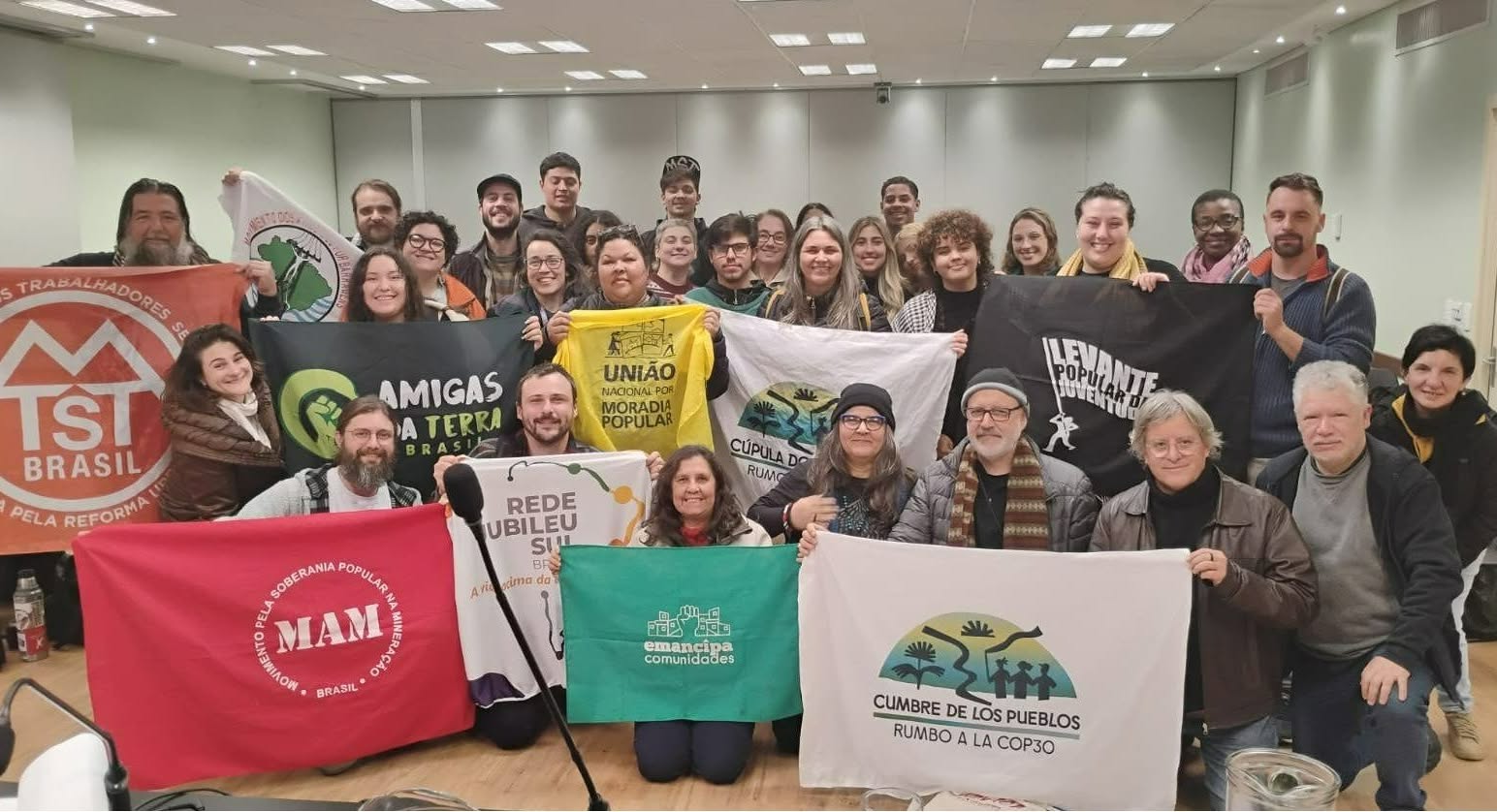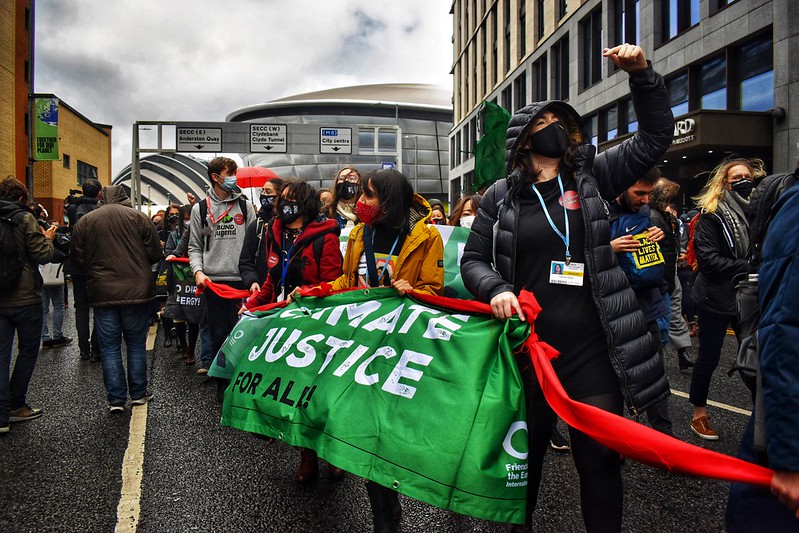Killing for land, struggling for life
Annual report on conflicts in the Brazilian countryside published by the Pastoral Land Commission

The Pastoral Land Commission (CPT) has launched their new annual report, entitled ‘Conflicts in the Countryside – Brazil 2021‘. Since 1985, the CPT has been recording the violence inflicted on peoples and communities in the Brazilian countryside, by landowners, mining and forestry companies, land speculators and businessmen. It also shows the negligence and complicity of the State.
From 1985 to 2020, the Commission have recorded 1973 murders of rural workers, indigenous people, quilombola (afrodescendent) people, land occupants and members of traditional communities. Yet, only 6% of the cases have been tried.
The 2021 Report was launched in 2022, following the International Day of Peasant Struggle celebrated annually on 17 April. This date commemorates the Eldorado do Carajas massacre that took place in Brazil in 1996, when 19 rural workers and landless peasants were murdered by the Military Police in Pará State.
One of the crucial social roles of the CPT report is to show the impacts of Capital on life, and to denounce the impunity of repressive state and corporate forces in the framework of struggles for land, water and work.
The report highlights both the ethical dimension of the records, as “the struggle for land is a matter of justice”, and their political dimension, as “the records are taken for workers, for them to know more about their reality and embark on their own path, becoming the subject and protagonist of their own story”.
These are not numbers, these are lives
In 2021, 35 people were murdered over land conflicts. This represents a 75% increase compared to 2020. There was also a 1100% increase in deaths as a consequence of these conflicts (not murders, but deaths linked in different ways to the extreme violence experienced by families in their communities).
Josep Iborra, coordinator of the CPT’s group in the Amazon, told Real World Radio: “Almost 80% of the violence caused by these conflicts is concentrated in the Amazon region (…) most of the deaths and murders have taken place in the Amazon.”
The new CPT report highlights the violence suffered in Yanomami indigenous lands, to the North of the Amazon, mainly affected by clandestine gold prospectors. Of the 109 deaths recorded, 101 were Yanomami indigenous people. This is one of the two massacres accounted for in the publication. The second massacre involved landless workers from the Nova Mutum region, where three peasants linked to the League of Poor Peasants were murdered in an operation by the National Security Forces.
Iborra believes that another issue to highlight in this report is the “participation of federal and state governments that support these actors who invade lands, expelling traditional communities and threatening indigenous people.”
The analysis by Afonso M. das Chagas, PhD in Political Science and member of the CPT’s National Training Team, included in the report, states: “This is not just a political blow, this is a blow against democracy, verbalised in narratives of hate, of rights violation, of historical revision. Inherent to this rhetoric we find a whole economic project aiming to rearticulate Capital in the countryside, to loot natural resources, privatise or appropriate public lands and commodify and financialise all natural resources. This is why this project, which is called a ‘necropolicy’ (a ‘policy of death’) created as a result of the media-legal-parliamentary coup (2016), thrived in 2018.” Afonso M. das Chagas added: “together with this ‘policy of death’, we find the so-called ‘economy of destruction’, which particularly stimulates and tolerates the agroexporter concentration of land.
According to ‘Conflicts in the Countryside – Brazil 2021’ there was also a 44% increase in the number of people tortured and 39% increase in people attacked. Also, this year saw the highest number of people rescued from slave work conditions since 2013. The Labour Prosecutors Office rescued 1726 people, 64 of whom were children and teenagers. For the first time, the report presents data about sexual orientation and gender identity: 5 LGBTIQ+ people were victims of violence in the countryside.
Violence grows, the struggle continues
According to partial data from 2022, 14 people have already been murdered over land conflicts. There are two cases of extreme violence: Firstly, the murder of José Gomes, his wife Marcia Nunes and their daughter Joane Nunes. Their bodies were found in lands where they had been living and working to conserve the forest for over 20 years. Secondly, the murder of Jonatas de Oliveira dos Santos, a 9-year old boy, son of a peasant leader.
The struggle continues, in spite of the attacks, violence and destruction generated by extractivism. In 2021, there was also a 72% increase in land occupations.
In addition, the report highlights the national indigenous organisation, and the Free Land Camp led by the Articulation of Indigenous People from Brazil (APIB) from 4-14 April in the federal capital city Brasilia, as one of the main actions in the struggle. In its final article, the report also refers to the solidarity expressed by peoples and communities living and working in the Brazilian countryside.
Following the report launch, rural and urban organisations met for two days and submitted an open letter to society, entitled ‘Permanent Campaign against Violence in the Countryside, in Defence of Territories and Life’.
The CPT report includes a phrase mentioned by the Macuxi indigenous leaders during the APIB Camp which summarises well their resistance to so much violence: “We mourn, but we fight on.”






